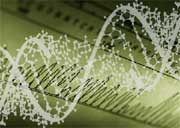The symposium, entitled The New Genomics: Public Health, Social and Clinical Implications, is sponsored by the Colston Research Society and directed by Professor George Davey Smith of the University’s Department of Social Medicine.
Other speakers include Professor Sir Walter Bodmer of Hertford College, University of Oxford who will ask whether the promise of molecular genetics has been fulfilled, Professor Lon Cardon of Glaxo Smith Kline who will discuss ways of translating complex disease genes into new medicines and Sir Mark Walport, Director of the Wellcome Trust, who will talk on how to get maximum value out of population genetic resources.
Professor Sydney Brenner will deliver his lecture in Lecture Theatre 1, School of Chemistry, Cantock’s Close on Thursday 4 June at 6.30pm. (Please email bhavna.mistry@bristol.ac.uk if you wish to attend.)
Professor Brenner is one of the world’s leading pioneers in genetics and molecular biology. He shared the Nobel Prize in Physiology or Medicine in 2002 for his discoveries concerning the genetic regulation of organ development and programmed cell death. Most recently, he has been studying vertebrate gene and genome evolution. His work in this area has resulted in new ways of analysing gene sequences, which has developed a new understanding of the evolution of vertebrates.
Among his many notable discoveries, Brenner established the existence of messenger RNA and demonstrated how the order of amino acids in proteins is determined. He also conducted pioneering work with the roundworm, a model organism now widely used to study genetics.
